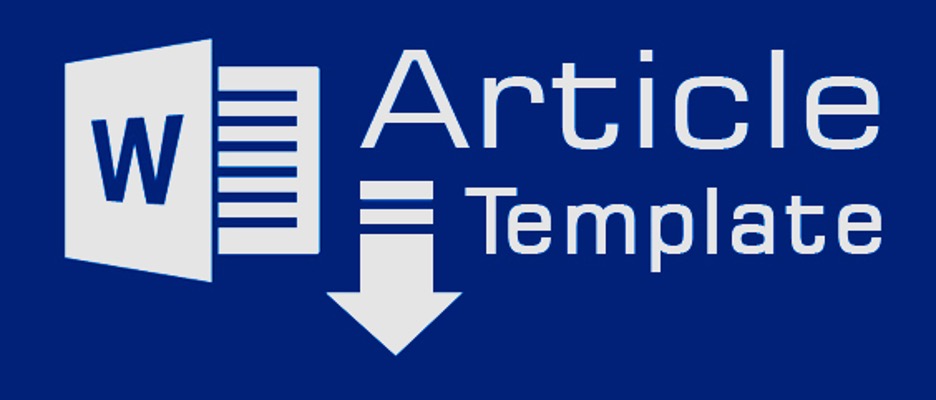NU DAN DĀR AL-ISLĀM: SEBUAH KAJIAN TERHADAP KONSTELASI SYARIAT ISLAM DI INDONESIA
DOI:
https://doi.org/10.30762/empirisma.v29i1.401Keywords:
NU, Dār al-Islām, ShārīahAbstract
This study aims to uncover the concept of dār al-islām and the application of sharia in the context of the
state according to Nahdhatul Ulama as one of the traditionalist views. The significance of this research lies
in the ways and views of NU that differ from modernist understandings such as the Indonesian Islamic State
(NII), even Masyumi in understanding dār al-islām. It cannot be denied, NU is a massive massive religious
organization whose thoughts and movements greatly influence the religious dynamics in Indonesia and have
an important role in the formalization of formalization of sharia in the body of the state. Methodologically, this
research is a library research which is approached with a historical approach. One-way approach is needed
because this research takes historical thinking. The data collected draws on the results of the 11th Congress of
the NU Congress in Banjarmasin as primary data, while books and other documents become secondary data. The
data collected is analyzed for validity through content analysis to create replicable inference. The conclusion
of the study is the concept of dār al-islām according to NU does not make Islam as a formal Islamic state that
requires the enactment of sharia. However, what is meant by the concept of dār al-islām is a religious term
that means wilayat al-islamiyah (Islamic territory) which must be preserved and maintained as a unity as
part of the Islamic tradition. So with this concept all Muslims are required to fight and expel invaders from the
motherland. The concept of dār al-islām does not want the formalization of sharia or to make the state as an
Islamic state as understood by radical schools
Downloads
References
Aceh, Abu Bakar, Salaf Muhyi ats-Tsurat, Gerakan Salafiyah di Indonesia, Jakarta: Giri Mukti Pasaka, 1990.
Ainun Najib, Muhammad, “NU, Soekarno, dan Staat Islam: Wacana Negara Islam dalam Berita Nahdlatoel Oelama,” Jurnal Ahkam, Vol. 5, No. 1 Tahun 2017.
al-Audah, Abd al-Qadir, al-Tasyri’ al-Jina’i al Islami, Beirut: Dar al-Khatib al-‘Arabi, t.t..
al-Khadduri, Majid, War and Peace in The Law of Islam, Baltimore: John Hokkins Press, 1955.
al-Syaukani, Muhammad bin Ali bin Muhammad, Nail al-Autār, Kairo: t.p., 1952.
al-Zuhaeli, Muhammd Mustafa, al-Wajiz fi Usul al-Fiqh al-Islami, Vol. 1. Damaskus: Dar al Khair li al-Tiba’ah wa al-Nashr wa al-Tauzi, 2006.
Anshor, Ahmad Muhtadi, “Dar al-Islam, Dar al Harb, Dar al-Shulh: Kajian Fikih Siyasah,” Jurnal Episteme Vol. 8 Nomor 1 tahun 2013.
Asrori, A. Ma’ruf (Ed), Ahkamul Fuqaha, Jakarta: NU Press, 2015.
Asy’ari, Hasyim, “Relasi Negara dan Agama: Pengalaman,” Jurnal Keamanan Nasional, Vol. 1, No. 1 Tahun 2015.
Ba’lawi, Abdurrahman bin Muhammad, Bughyah al-Mustashidīn, Kairo: Sharikah wa al-Maktabah Mustafa al-Babi al-Halabi, 1952.
Baso, Ahmad, NU Studies Pergolakan Pemikiran Islam Antara Fundamentalisme Islam dan Fundamentalisme Liberal, Jakarta: Penerbit Erlangga, 2006.
Bruinessen, Martin Van, Kitab Kuning, Pesantren dan Tarekat: Tradisi-Tradisi Islam di Indonesia, Yogyakarta: Pustaka Pelajar, 2000.
Ehwanudin, “Tokoh Proklamator Nahdhatul Ulama (Studi Historis Berdirinya Jam’iyah Nahdhatul Ulama),” Jurnal Fikri Vol. 1 Nomor 2 Tahun 2016.
Farih, Amin, “Nahdhatul Ulama (NU) dan Konstribusinya dalam Memperjuangkan Kemerdekaan dan Mempertahankan Negara Kesatuan Republik Indonesia (NKRI),” Jurnal Penelitian Sosial Keagamaan, Vol. 24 Nomor 2 tahun 2017.
Feillard, Andre, NU Vis a Vis Negara, Pencarian Bentuk, Isi dan Makna, Jakarta: LKiS, 2007.
Formichi, Chiara. “Dār al-Islām and Dār al-Ḥarb: From Political Ideal to Territorial Reality” dalam Gionanna Calasso, Dār al-Islām/Dār al-Ḥarb: Territories, People and Indentities. Boston: Brill, 2017.
Haidar, Ali, Nahdlatul Ulama dan Islam Indonesia: Pendekatan Fikih dalam Politik, Jakarta: IAIN Syarif Hidayatullah, 1933.
Halim, Abdul, Sejarah Perjuangan KH Abdul Wahab, Bandung: Percetakan Baru, t.t.. Hisyam, Muhammad, “Nahdhatul Ulama dan Problematika Relasi Agama-Negara di Awal Kemerdekaan RI,” Jurnal Lektur Keagamaan, Vol. 12 Nomor 1 tahun 2014.
Hunter, W. W, the Indian Musalmans, London: t.p., 1871.
Iqbal, Muhammad dan Amin Husein Nasution, PemikiranPolitik Islam, Jakarta: Kencana, 2010.
Jindan, Khalid Ibrahim, Teori Politik Islam, Telaah Kritis Ibnu Taimiyah tentang Pemikiran Islam, terj. Masrohin. Surabaya: Risalah Gusti, 1995.
Krippendorf, Klaus, Analisis Isi : Pengantar Teori dan Metodologi, terj. Farid Wajdi, Jakarta: Citra Niaga Pers, 1993
. Lubis, Nabilah, Literatur, Teks, Dan Metode Penelitian Filologi, Jakarta: Puslitbang Lektur Keagamaan, 2007.
Luth, M. Thohir, M. Natsir, Dakwah dan Pemikirannya, Jakarta: Gema Insani Press, 1999.
Masruhan, Pemikiran Kyai NU tentang Relasi Agama dan Negara, al-Qanun, Vol. 12, No. 1, Juni 2009.
Masyhuri, Aziz, Masalah Keagamaan Nahdlatul Ulama: Hasil Muktamar dan Munas Alim Ulama Kesatu (1926) sampai dengan Kedua Puluh Sembilan (1994), Surabaya: Dinamika Press, 1997.
Mughits, Abdul, Kritik Nalar Fiqh Pesantren, Jakarta: Kencana, 2018.
Muhammad, Herry, Tokoh-tokoh Islam Berpengaruh Abad 20, Jakarta: Gema Insani Press, 2006
Downloads
Published
How to Cite
Issue
Section
License
Copyright (c) 2022 Zayad Abd.Rahman, Ali Syamsuri

This work is licensed under a Creative Commons Attribution-NonCommercial-ShareAlike 4.0 International License.


























